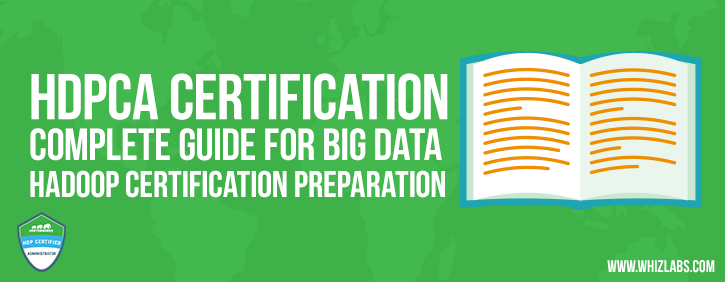Today’s IT job market is revolving around Big data analytics, 60% of the highest paid jobs direct to Big data careers. However, the job market is ever changing in IT industry and organizations look for well-honed staffs. Hence, if you are looking for a career in Big data, you will be happy to know that Big data market is growing rapidly not only in IT sector but also in banking, marketing, and advertising sectors.
As per the statistics, there will be almost 50,000 vacancies related to Big data are currently available in different business sectors of India. Hadoop is a vast framework covering Hadoop administration and programming areas. It demands skills as Spark developer, Hadoop administration etc and opens up the horizon for a programmer and a non-programmer at the same time. Moreover, whether you are a fresher or experienced, you can step into Big data careers with proper training and certifications.
Which Big Data Career is Suitable for You?
We can answer this question from many angles.
Big data careers can be directed in two main streams –
- Hadoop administration
- Hadoop programmer
Hadoop administration is open to all in Big data careers. Whether you are a database administrator, non-programmer or a fresher you can explore this area. Moreover, if you are already in Big data careers and well acquainted with Hadoop ecosystem, Hadoop administration will add a feather in your cap. Whereas if you are not familiar with any programming languages like Java, Python, exploring Big data careers in Hadoop programming may be a little challenge for you. However, with proper training and practice, you can flourish Big data careers as a Spark developer easily. If you want to know more specifically what the job responsibilities of a Hadoop admin and a Hadoop programmer keep on reading the next sections. It is always easier to validate your position with the right information and data points.
What does a Hadoop Admin do?
With the increased adoption of Hadoop, there is a huge demand for Hadoop administrators to handle large Hadoop clusters in the organizations. A Hadoop admin performs a strong job role, he acts as the nuts and bolts of the business. A Hadoop admin is not only responsible to administrate manage Hadoop clusters but also manage other resources of the Hadoop ecosystem. His duties involve handling installation and maintenance of Hadoop clusters, performing an unaffected operation of Hadoop clusters, and manage overall performance.
Responsibilities of Hadoop Admin
- Installation of Hadoop in Linux environment.
- Deploying and maintaining a Hadoop cluster.
- Ensuring a Hadoop cluster is up and running all the time
- To decide the size of the Hadoop cluster based on the data to be stored in HDFS.
- Creating or removing a new node in a cluster environment.
- Configuring NameNode and its high availability
- Implement and administer Hadoop infrastructure on an ongoing basis.
- To deploy new and required hardware and software environments for Hadoop. In addition to that working on expanding existing environments.
- Creating Hadoop users including Linux users for different Hadoop ecosystem components and testing the access. Moreover, as a Hadoop administrator, you need to set up Kerberos principals
- Performance tuning in Hadoop clusters environment and also for Map Reduce.
- Screening of Hadoop cluster performances
- Monitoring connectivity and security in the cluster environment.
- Managing and reviewing log files.
- File system management.
- Providing necessary support and maintenance for HDFS.
- Performing necessary backup and recovery jobs in Hadoop
- Coordinating with the other business teams like infrastructure, network, database, application, and intelligence to ensure high data quality and availability.
- Resource management.
- Installing operating system and Hadoop updates when required. Furthermore, collaborating with application team for such installations.
- As a Hadoop admin working as Point of Contact for Vendor communications.
- Troubleshooting
Hence, keeping in mind the above points you must possess the following skills to achieve Big data careers as Hadoop admin.
Required Skills for Hadoop Administration
- Hadoop runs on Linux. Hence, you should have excellent working knowledge of LINUX
- Good experience in shell scripting
- Good understanding of OS levels like process management, memory management, storage management and resource scheduling.
- Good hold on configuration management.
- Basic knowledge of networking.
- Knowledge of automation tools related to installation.
- Knowledge of cluster monitoring tools
- Programming knowledge of core java is an added advantage but not mandatory.
- Good knowledge of networking
- Good understanding of Hadoop ecosystem and its components like Pig, Hive, Mahout, etc.
What does a Hadoop Developer do?
Hadoop’s programming part is handled through Map Reduce or Spark. However, Spark is going to replace Map Reduce in near future. Hence, if you want to be a Spark developer, your first and foremost job responsibility should be understanding data. Big data careers are all about handling with the big chunk of data. Hence if you want to stand out as a developer you should understand data and its pattern. Unless you are familiar with data it will be hard for you to get a meaningful insight out of those data chunk. Furthermore, you can foresee the possible results out of those scattered chunks of data.
In a nutshell, as a developer, you need to play with data, transform it programmatically, and decode it without destroying any information hidden in the data. In addition to that, it is all about programming knowledge. You will receive either unstructured or a structured data and after cleaning through various tools will need to process those in the desired format. However, this is not the only job that you have to do as a Spark developer. There are many other jobs to do on daily basis.
Responsibilities of Spark Developer
- Loading data using ETL tools from different data platforms into Hadoop platform.
- Deciding file format that could be effective for a task.
- Understanding the data mapping i.e. Input-output transformations.
- Cleaning data through streaming API or user-defined functions based on the business requirements.
- Defining Job Flows in Hadoop.
- Creating data pipelines to process real-time data. However, this may be streaming and unstructured data.
- Scheduling Hadoop jobs.
- Maintaining and managing log files.
- Hand holding with Hive and HBase for schema operations.
- Working on Hive tables to assign schemas.
- Deploying HBase clusters managing them.
- Working on pig and hive scripts to perform different joins on datasets
- Applying different HDFS formats and structure like to speed up analytics. For example Avro, Parquet etc.
- Building new Hadoop clusters
- Maintaining the privacy and security of Hadoop clusters.
- Fine tuning of Hadoop applications.
- Troubleshooting and debugging any Hadoop ecosystem at runtime.
- Installing, configuring and maintaining enterprise Hadoop environment if required
[divider /]
[divider /]
Required Skills for Spark Developer
From the above-mentioned job responsibilities, you must have gained some overview of required skills you must possess as a Hadoop developer. Let’s look into the list to get a comprehensive idea.
- A clear understanding of each component of Hadoop ecosystem like HBase, Pig, Hive, Sqoop, Flume, Oozie, etc.
- Knowledge of Java is essential for a Spark developer.
- Basic knowledge of Linux and its commands
- Excellent analytical and problem-solving skills.
- Hands on knowledge of scripting languages like Python or Perl.
- Data modeling skills with OLTP and OLAP
- Understanding of data and its pattern
- Good hands-on experience of java scheduling concepts like concurrency and multi-threading programming.
- Knowledge of data visualizations tools like Tableau.
- Basic database knowledge of SQL queries and database structures.
- Basic knowledge of some ETL tools like Informatica.
Salary Trend in the Market for Hadoop Developer and Administrator
The package does not vary much for different positions in Big Data. The average salary for a Hadoop admin is around $123,000 per year whereas for a Spark developer it could be $110,000. However, salary should not be the prime concern while choosing the Big Data careers. Because with experience it will increase automatically. Moreover, if you obtain a Hadoop certification it will give you an extensive knowledge along with a future scope in your Big data careers with an amazing salary.
Job Trend in the Market for Big data
This is an obvious fact that market demands for developers are more than the administrator in Big data careers. A developer can take over the job of a Hadoop administrator whereas an admin can’t play the role of a developer unless he has adequate programming knowledge. However, with the huge and complex production environment, now companies need dedicated Hadoop administrators.
Conclusion
If you are a programming savvy then definitely Spark developer would be an easy transition and right fit for you. However, if you are a software administrator and want to continue to this role then go for Hadoop administration. Finally, the choice is solely up to you and your knack towards the Big Data careers you are looking for your future.
[divider /]
A good Training, Certifications in Big Data and 100% dedication can make anything possible. Remember one day you started from scratch!
- Top 45 Fresher Java Interview Questions - March 9, 2023
- 25 Free Practice Questions – GCP Certified Professional Cloud Architect - December 3, 2021
- 30 Free Questions – Google Cloud Certified Digital Leader Certification Exam - November 24, 2021
- 4 Types of Google Cloud Support Options for You - November 23, 2021
- APACHE STORM (2.2.0) – A Complete Guide - November 22, 2021
- Data Mining Vs Big Data – Find out the Best Differences - November 18, 2021
- Understanding MapReduce in Hadoop – Know how to get started - November 15, 2021
- What is Data Visualization? - October 22, 2021





Hello,
Hadoop is among the major big data technologies and has a vast scope in the future. Being cost-effective, scalable and reliable, most of the world’s biggest organizations are employing Hadoop technology to deal with their massive data for research and production.
wonderful info…..
Well done! It is so well written and interactive. Keep writing such brilliant piece of work. Glad i came across this post.
This technology has potential for many global companies.